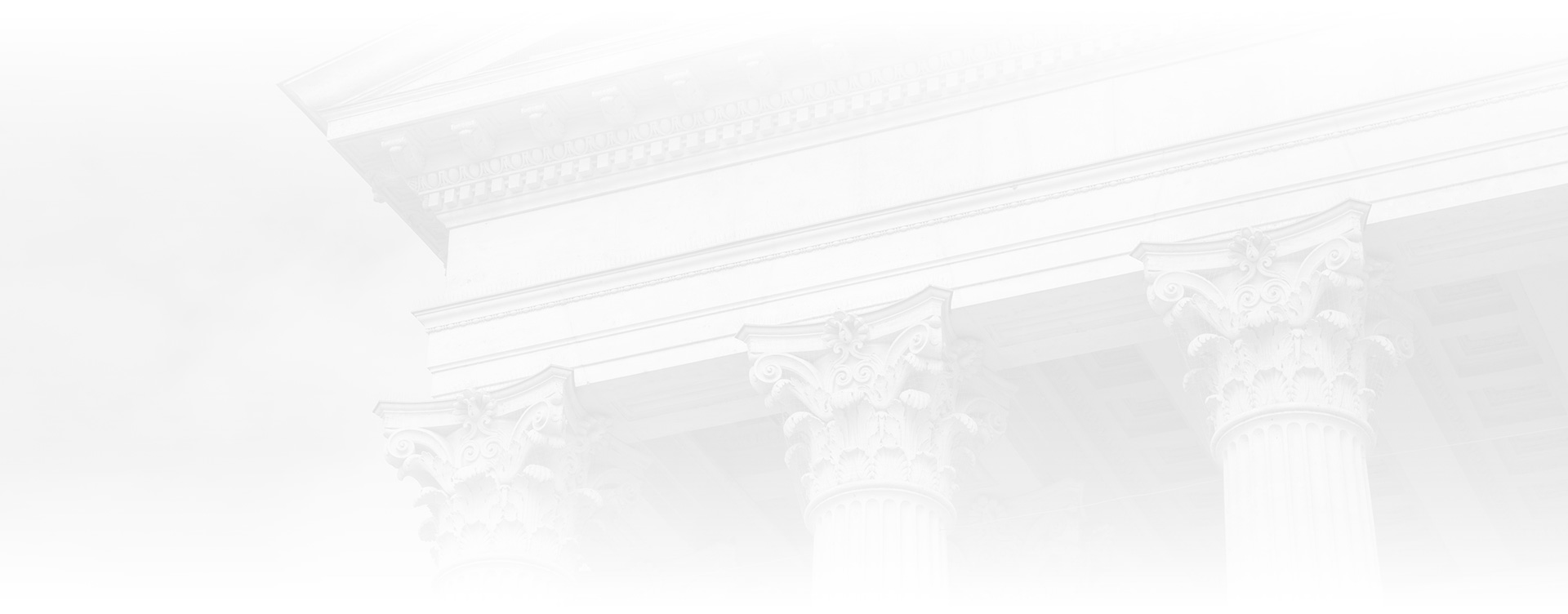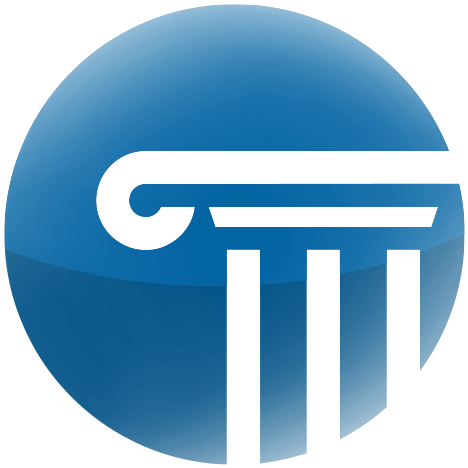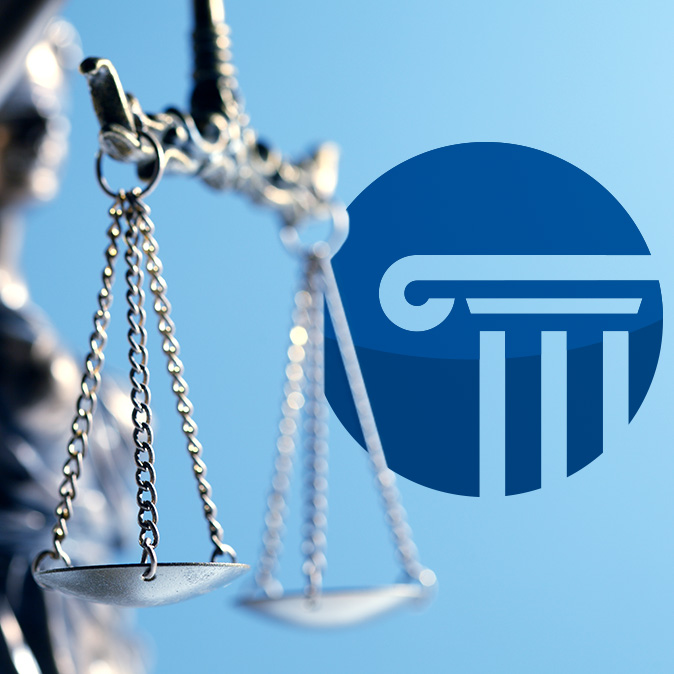
Debt Relief Attorney in Jacksonville
Why Choose The Law Offices of David C. Meltzer, PLLC for Debt Relief in Jacksonville, FL
Facing financial difficulties can be overwhelming, but seeking help from a knowledgeable debt relief attorney in Jacksonville can offer hope and direction. At The Law Office of David C. Meltzer, PLLC, we focus on personalized legal solutions tailored to each client's unique financial challenges. Our nearly decade-long experience in the Jacksonville area ensures that our clients receive compassionate guidance throughout their financial recovery journey.
We pride ourselves on building strong relationships with our clients, understanding that open communication is key to developing effective strategies. Our team takes the time to listen to your concerns, providing reassurance and clarity during what can be a stressful time. This client-centered approach not only addresses immediate financial needs but also fosters long-term financial recovery and stability.
When you work with us, we begin by learning how debt is affecting your daily life in Jacksonville, from potential wage garnishments to threats of foreclosure in Duval County courts. By understanding the full picture, we can explain how different tools, such as bankruptcy, negotiated payment plans, or targeted settlements, might impact your credit, your home, and your long-term goals. We then help you compare these options in plain language, so you can decide on a path that balances short-term relief with your future financial plans.
Dealing with overwhelming debt? Speak with a debt relief lawyer in Jacksonville who’s ready to guide you forward. Call (904) 418-7454 or contact us today.
Personalized Legal Solutions for Debt Relief
We understand that each client's financial situation is unique. Our team is dedicated to crafting personalized strategies that address individual circumstances. This client-centered approach allows us to provide effective solutions, whether through bankruptcy proceedings, negotiation of debt settlements, or other viable options.
- Tailored strategies: Customized legal plans that fit your specific financial needs.
- Comprehensive consultation: Evaluate all possible debt relief options with knowledge in both bankruptcy and real estate law.
Our debt relief lawyers in Jacksonville possess in-depth knowledge of the financial options available under Florida law, positioning us to recommend the most effective tactics for your situation. By leveraging our understanding of local courts and creditors, we enhance our ability to negotiate favorable terms and bring about meaningful change in your financial landscape.
As we develop your plan, we walk through your income, assets, and key obligations line by line to determine what is realistic over the next three to five years. For some clients, that may mean organizing a structured repayment plan that fits within a tight household budget; for others, it may involve addressing a single pressing issue, such as a pending foreclosure sale date or a lawsuit in the Duval County Courthouse. Throughout this process, we keep you informed about what documents we need, how long each step is likely to take, and what to expect from creditors along the way.
Understanding Debt Relief Solutions in Jacksonville
Debt relief services in Jacksonville involve navigating complex legal landscapes specific to Florida's regulations. Our debt relief attorneys in Jacksonville are well-versed in local statutes, ensuring compliance and offering informed guidance that aligns with state laws. We assist in understanding the legal requirements and procedures of filing for bankruptcy, negotiating with creditors, or managing court proceedings if necessary.
Our extensive experience working within the Jacksonville community allows us to provide relevant insights tailored to local economic conditions. Whether addressing issues related to housing markets, employment shifts, or pervasive business trends, our solutions are grounded in real-world application. We integrate this regional knowledge to ensure that our legal strategies are both practical and effective for our clients.
We also help you understand how different forms of debt are treated under Florida and federal law. For example, credit card balances and medical bills may be handled very differently from tax obligations, secured auto loans, or a mortgage on property in Jacksonville’s surrounding neighborhoods. By breaking down the rules that apply to each category, we can identify which debts may be reduced, which may be reorganized, and which may remain even after a bankruptcy case. This clarity allows you to set realistic expectations and avoid surprises later in the process.
Common Debt Relief Challenges & How We Address Them
Many Jacksonville residents face unique challenges when dealing with mounting debt, such as foreclosure risks or creditor harassment. Our firm actively addresses these concerns by:
- Foreclosure defense: We diligently work to protect your home and negotiate terms that may stop foreclosure proceedings.
- Creditor negotiation: Our debt relief attorneys engage with creditors to reduce outstanding debts and prevent aggressive collection practices.
In doing so, we not only focus on immediate relief but also make strategic plans to achieve sustained financial security. Our proactive approach involves anticipating potential challenges and preparing solutions before they escalate into larger problems. By emphasizing preventive measures and a holistic view of your financial health, we aim to deliver peace of mind.
For many clients, these challenges show up as a mix of collection lawsuits, constant phone calls, and anxiety about losing essential property. We take time to clarify what creditors are legally allowed to do in Florida and what steps can stop actions such as wage garnishment or a scheduled foreclosure sale. When appropriate, we may recommend that you speak with a debt relief attorney Jacksonville residents trust for guidance on whether a court filing, a negotiated workout, or a combination of both can best protect your income and assets.
The Impact of Local Jacksonville Courts & Laws
The local legal environment in Jacksonville significantly influences debt relief procedures. Familiarity with regional court systems and practices aids in streamlining case management and reducing potential delays. Our resources and local connections enhance our capacity to secure favorable outcomes efficiently.
Working closely with Jacksonville's legal institutions, we stay current on any changes in legislation or court processes that might affect your case. This vigilance ensures that our approaches are always up-to-date and aligned with the most contemporary legal standards. As we navigate each case, we provide continuous updates and clear explanations, so you are never left in the dark about your situation.
Procedures in the Jacksonville Division of the U.S. Bankruptcy Court, and in local state courts, can differ from practices in other parts of Florida, particularly with respect to scheduling, required documents, and expectations at hearings. Because we regularly appear before these courts, we can prepare you for what will happen at each stage, from the meeting of creditors to any contested hearings. This preparation helps reduce stress and contributes to a more orderly process, allowing you to focus on rebuilding rather than worrying about unfamiliar court requirements.
Our Debt Relief Process From First Call to Resolution
Understanding what happens after you contact a debt relief lawyer Jacksonville residents rely on can make the decision to reach out much less intimidating. We follow a clear, organized process so you always know what comes next and how each step is moving you toward greater financial stability. From the first phone call to the final resolution of your case, we focus on communication, preparation, and practical problem-solving.
Your journey typically begins with a brief phone intake, where we gather basic information about your debts, income, and any urgent deadlines, such as a foreclosure sale date or scheduled court hearing in Jacksonville. We then schedule a more detailed consultation, during which we review documents like pay stubs, tax returns, loan statements, and collection letters. Using this information, we outline two or three realistic paths forward and discuss the pros and cons of each approach, including how long they may take and what your obligations would be at each stage.
Once you decide on a strategy, we move into the implementation phase. That might mean preparing a bankruptcy petition, organizing a series of settlement offers, or contacting specific creditors to negotiate new payment terms. Throughout this period, we keep you updated on every filing, response, and court date, particularly when dealing with matters in local Jacksonville courts or with area creditors. When your plan is in place and active, we continue to answer questions about credit rebuilding, budgeting, and how to avoid falling back into unmanageable debt, so the relief you gain has a lasting impact.
How a Debt Relief Attorney in Jacksonville Helps Protect Your Home and Assets
For many people in Jacksonville, the biggest worry about seeking debt relief is what might happen to a home, vehicle, or other essential property. Working with a debt relief attorney in Jacksonville can help you understand which assets are protected, which may be at risk, and what steps can reduce that risk as much as possible. By taking a careful inventory of what you own and how it is titled, we can design a plan that aims to address your debt while preserving the foundation of your financial life.
Florida law includes homestead protections that may apply to your primary residence, but how those protections work can depend on your circumstances and whether you are involved in a bankruptcy case, foreclosure proceeding, or negotiated settlement. We explain how these rules interact with mortgages, home equity lines of credit, and judgment liens that might be recorded in Duval County. We also look closely at vehicles, retirement accounts, and household goods to determine what categories may be shielded and how that should influence your choice of debt relief options.
After we review your asset picture, we discuss practical steps you can take to safeguard what matters most, such as staying current on certain payments, gathering records that prove ownership, or preparing for a potential meeting with a bankruptcy trustee in Jacksonville. By making these issues part of the conversation early, rather than waiting until a crisis point, we give you more control over the outcome and help ensure that any debt relief strategy you pursue is aligned with your priorities and long-term goals.
Choosing the Right Debt Relief Lawyer for Your Situation
Selecting a debt relief lawyer Jacksonville residents can trust is an important decision, especially when so much of your financial future is at stake. You want someone who understands the laws, but also someone who listens, communicates clearly, and respects your goals. Taking a thoughtful approach to choosing counsel can make the entire process less stressful and more productive.
When you are comparing options, it can help to ask how the firm handles communication, who will be involved in your case day to day, and how often you can expect updates. You may also want to discuss their familiarity with issues like foreclosure defense, real estate concerns, and creditor lawsuits in the Jacksonville area, since these can significantly affect the type of debt relief strategy that makes sense for you. We encourage potential clients to bring a written list of questions to the first meeting so nothing important is overlooked.
It is also useful to consider how comfortable you feel discussing difficult topics with the attorney and their team. Debt problems can touch every part of your life, from family relationships to work performance, and honest conversations are essential to building an accurate picture of your situation. By choosing a firm that combines legal knowledge with patience and clear explanations, you increase the chances that your plan will be both realistic and sustainable, giving you a stronger foundation as you move toward a more stable financial future in Jacksonville.
Frequently Asked Questions
What Debt Relief Options Are Available in Jacksonville?
Residents of Jacksonville may consider several debt relief options, including Chapter 7 bankruptcy or Chapter 13 bankruptcy, debt consolidation, and debt settlement. Each option comes with its own set of requirements and benefits, and our firm is equipped to help you evaluate these paths. By understanding your financial situation and goals, we guide you in choosing a strategic plan that best fits your needs.
Chapter 7 bankruptcy might be suitable for individuals who wish to discharge most unsecured debts, while Chapter 13 could allow for a more manageable repayment plan over several years. Debt consolidation combines multiple debts into one liable payment, potentially with lower interest rates, whereas settlements might reduce the overall amount owed. We meticulously assess each possibility to determine the most feasible and beneficial path forward.
How Does Bankruptcy Work in Jacksonville, FL?
Filing for bankruptcy in Jacksonville involves adhering to federal and state-specific laws. Chapter 7 bankruptcy may allow for debt discharge, while Chapter 13 focuses on debt reorganization and repayment plans over time. Our experienced debt relief attorneys in Jacksonville are prepared to explain the intricacies of each option and help determine the best approach for your circumstances. The goal is to provide a fresh financial start while protecting as many of your assets as possible.
Our legal team is committed to walking you through each step of the process, from the initial filing to the final resolution. This includes a thorough analysis of your financial documentation, representation at required court hearings, and ongoing advice regarding any post-bankruptcy obligations. We aim to make the process as streamlined and stress-free as possible for you.
What Can I Expect During a Consultation with a Debt Relief Lawyer?
During a consultation with our debt relief lawyer in Jacksonville, we review your current financial situation and discuss potential legal strategies. This includes an analysis of debts, assets, income, and expenses to find the most advantageous pathways to financial recovery. The initial consultation is provided free of charge, allowing clients to explore their options without added financial pressure.
We believe in transparency and clarity, explaining complex legal terms in simple, understandable language. This initial meeting is an opportunity to ask questions, express concerns, and hear personalized advice on how best to proceed. We empower you with information, so you can make informed decisions about your financial future with confidence.
Are There Alternatives to Bankruptcy?
Yes, there are alternatives to bankruptcy that may be more suitable depending on your financial context. Debt settlement and negotiation with creditors can sometimes provide relief without the need to file for bankruptcy. Our attorneys are skilled in assessing and pursuing these alternative options, ensuring we provide personalized solutions aligned with your long-term financial health goals.
Exploring these alternatives often involves detailed negotiations with creditors to achieve manageable repayment terms or reduced balance settlements. We craft strategies that might involve restructuring payment plans, halting interest accruals, or agreeing on lump-sum resolutions that can alleviate financial burdens and stress. Our goal is to help you regain control over your finances while minimizing disruption to your daily life.
How Do Jacksonville's Local Laws Affect Debt Relief?
Florida has specific laws that impact debt collection, bankruptcy, and foreclosure procedures. Familiarity with these local regulations is crucial in managing and resolving debt issues efficiently. Our deep understanding of Jacksonville’s legal landscape allows us to navigate these complexities, providing clients with advice that is both practical and legally sound.
These regulations might include nuances in homestead exemptions, garnishment rules, or permissible creditor actions. We are committed to keeping abreast of all relevant legal changes and communicating their implications to our clients. This vigilance ensures that none of your rights are compromised and your financial recovery plan is both effective and legally compliant.
Your Path to Financial Stability Starts Here
At The Law Office of David C. Meltzer, PLLC, we believe in empowering our clients with knowledge and support, tailored to help you regain control over your financial future. If you’re feeling overwhelmed by debt, reach out to us to schedule a free consultation. Together, we can explore your options and create a personalized plan to navigate your financial challenges effectively, offering peace of mind and a path toward a stable financial future.
Our committed team stands ready to assist you at every step of your journey towards financial recovery. Whether you are dealing with excessive credit card debt, medical bills, or student loans, our tailored solutions are designed to help alleviate your financial burden. Reach out today, and let us join you in this critical step towards reclaiming your financial independence.
Taking the first step with a debt relief lawyer that Jacksonville residents can turn to is often the hardest part, especially if you have been trying to manage creditors on your own for months or years. We encourage you to bring any letters, lawsuits, or collection notices you have received so we can review them together and outline a clear sequence of next actions. By turning uncertainty into a structured plan, we work to reduce stress and give you a roadmap for moving from crisis to stability in a way that fits your life in Jacksonville.
Ready to take control of your finances? Connect with a debt relief attorney in Jacksonville at The Law Office of David C. Meltzer, PLLC. Call (904) 418-7454 or contact us today to get started.



Guidance. Experience. Compassion.
Reviews & Testimonials
Hear what clients are saying about The Law Office of David C. Meltzer, PLLC
-
Left us with Peace of Mind
“When I called he answered the phone quickly and was happy to get my husband and I in for an appointment to discuss our potential business questions and guide us in the right direction!”- Taylar S.

The Law Office of David C. Meltzer, PLLC Is The Right Choice to a Fresh Start

Learn More About Bankruptcy & Foreclosure
Frequently Asked Questions
-
Bankruptcy is legal process in which a debtor seeks an order of relief from the bankruptcy court. In Layman’s’ terms when someone files bankruptcy, they are asking the court for legal protection from their creditors. This legal protection could be a discharge of debts they are unable to pay or it could be additional time to repay a secured debt. Debtors who pass the means test or do not have a regular source of income are eligible for a discharge under chapter 7 of the bankruptcy code. A discharge is a federal court order that prevents creditors from attempting to collect on a debt. Individuals and Corporations can both file chapter 7 bankruptcy, however only individual debtors can receive a discharge. The most significant issues that arise in chapter 7 bankruptcy cases are the loss of property and the possibility of the court denying your discharge. Very few debtors are denied a discharge by the bankruptcy court.
-
A discharge is typically entered toward the end of a bankruptcy case and is an order signed by a Federal Judge. This order states that the person who filed bankruptcy no longer has any obligation to pay certain debts that were included in the bankruptcy.
-
Almost all debts are dischargeable. Student loans, most taxes, and Domestic Support Obligations cannot be discharged. As a general rule all other kinds of debts are dischargeable.


